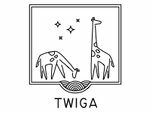TWIGA
About Us
TRANSFORMING WATER, WEATHER, and CLIMATE INFORMATION THROUGH IN SITU OBSERVATIONS for GEO-SERVICES in AFRICA
TWIGA is a 4-year project (2018 – 2021) under EU Horizon2020 aimed to transform weather water data into value-added information services.
The Objective
Provide currently unavailable geo-information on weather, water, and climate for sub-Saharan Africa by enhancing satellite-based geo-data with innovative in-situ sensors and developing related information services that answer needs of African stakeholders and the GEOSS community.
Concept
A systematic feedback loop to reciprocally validate in situ measurements and satellite data in one integrated model. Over 500 in situ measurement stations using citizen science.
Our Ambition
Few places on Earth are served worse with geo-information than Africa. At the same time, the potential value of geo-information services in Africa is extremely large. TWIGA’s overarching ambition is to fill this information gap by first enhancing satellite-based geodata with innovative in situ sensors and development of actionable information services based on this geodata. This ambitious goal can be achieved thanks to recent advances in sensor and communication technology, as well as new sensing platforms such as UAVs and citizens’ observatories. A defining characteristic of TWIGA’s ambition is that the project develops complete value chains and not just links in that chain. The scientific activities will lead to new products, such as maps of precipitable water vapor, energy fluxes, and crop development. Combinations of in situ observations, satellite products, and models will be well beyond the state-of-the-art, not just in Africa but for any continent. These scientific products will have calibration chains associated with them and the necessary error structures are defined and quantified. These science grade products will be delivered to GEOSS and, where appropriate, Copernicus. These new geo-products, combined with existing data from GEOSS and Copernicus, will feed the development of information feeds that end-users can act upon. The HydroNET platform allows for rapid prototyping of such geo-information services. Dissemination takes place through different channels, from phone messages spoken in local languages to web portals. The consortium has been built to serve this complete chain with a mix of African and European partners, SMEs, academia, and governmental meteorological agencies.
TWIGA ADVISORY BOARD

Jippe Hoogeveen
FAO Aquastat

Michiel van Haersma Buma
Delfland Water Authority

Dr. Daniel Adom
UN Habitat

Prof. Simonetta Paloscia
IFAC-CNR

